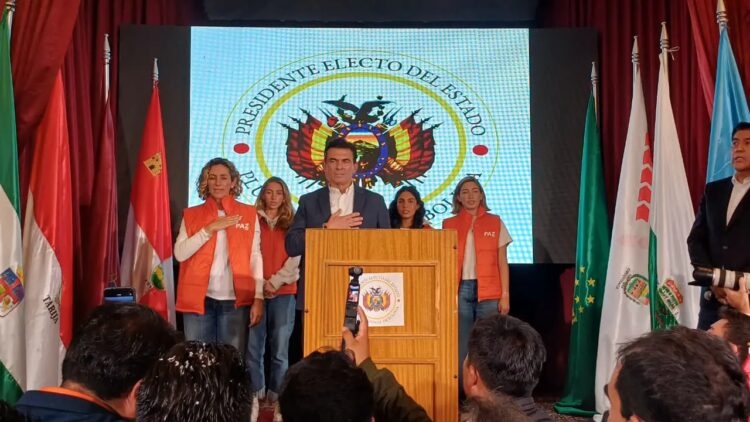Rodrigo Paz Wins Bolivia’s Presidency, Marking a New Political Direction

Senator Rodrigo Paz, of the Christian Democratic Party (PDC), was elected President of Bolivia this Sunday in a runoff that ended 20 years of rule by the Movement for Socialism (MAS). Paz secured 54.6% of the vote, defeating his rival, former president Jorge “Tuto” Quiroga, who obtained 44.5%.
Although Quiroga, representing the Free Alliance, had led in the polls, Paz managed to sway undecided voters — including those who had considered casting blank or null ballots — and achieved a 9.2-point lead in the second round.
A key factor in his victory was support from “orphaned” progressive voters traditionally aligned with Evo Morales’s MAS, which did not field a candidate in this election. Polls indicated that nearly 20% of the electorate remained undecided until the final days of the campaign.
In the first round, held on August 17, Paz had already surprised observers by finishing first with 32% of the vote, despite earlier polls placing him in third. That outcome led to the first presidential runoff in Bolivia’s history.
About the New President
An economist and international relations expert, aged 57, Paz holds a Master’s in Political Management from American University in Washington, D.C. Currently a senator representing Tarija, he previously served as a national deputy (2002–2010), city councilor (2010–2015), and mayor of Tarija (2015–2020).
Born in Santiago de Compostela, Spain, he is the son of former Bolivian president Jaime Paz Zamora (1989–1993).
His government program calls for restructuring the tax system, creating a Currency Stabilization Fund, liberalizing foreign trade, and modernizing labor regulations, along with initiatives to promote research, development, and productive innovation.
Paz takes office with a message of moderate change, which helped him build broad, cross-party support during the campaign. However, that coalition could face strains as his administration moves forward. His reformist agenda diverges sharply from MAS policies and may unsettle sectors that backed him as the “lesser evil.”
The new president will also face the challenge of governing without a legislative majority, forcing him to negotiate with more conservative forces to advance his policy agenda.
Bolivia thus embarks on a new political chapter, marked by hopes for stability but also by potential tensions as the government seeks to balance a diverse coalition and a fragmented parliament.
